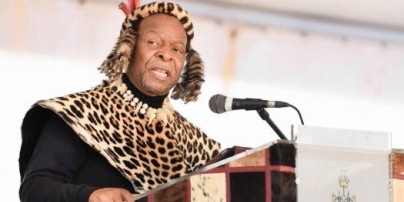Recently published is Mbongiseni Buthelezi’s co-authored chapter on chieftancy in contemporary South Africa, in:
Comaroff, J.L. and J. Comaroff. eds., 2018. The Politics of Custom: Chiefship, Capital and the State in Contemporary Africa. Chicago, IL; London: University of Chicago Press, pp. 100–35.
The book will launch in Johannesburg later this year.
The Salience of Chiefs in Post Apartheid South Africa: Reflections on the Nhlapo Commission
By Mbongiseni Buthelezi and Dineo Skosana
[excerpt]
South Africa is the latest in a series of decolonizing African nations to grapple
with how to accommodate traditional authorities in a democratic state.
Its late entry into postcoloniality had led some observers to anticipate that
it would avoid the problem by doing away with chiefs altogether, taking
lessons from other African countries (van Kessel and Oomen 1997:561–
85).1 However, as the form of the state and its various constitutive elements
have been worked out since the early 1990s, traditional authorities progressively have been accommodated, no longer as pawns of indirect rule
and apartheid but as an assertive force that demands to be heard and recognized.
The Commission on Traditional Leadership Disputes and Claims,
colloquially known as the Nhlapo Commission after its first chairperson,
Thandabantu Nhlapo, is the latest attempt to resolve the position of customary
authorities.2 It was tasked with cleansing the institution of its colonial
and apartheid accretions and with determining who is a legitimate
customary authority— by contrast to those who owe their position to colonial
or apartheid authorities (see, e.g., Peires 2014).
This chapter examines the work of the Nhlapo Commission in KwaZulu-
Natal and Limpopo provinces. It aims to analyze the ongoing attempts of
customary authorities to carve out a place for themselves in democratic
South Africa by perpetuating the institutional practices of the apartheid
era, thus extending the history of the ethnic homelands of the past into the
present and future. Among other things, two become especially clear when
we interrogate this history: the first are the similarities in the moves by successive governments — those of the Union of South Africa, of the apartheid
years, and of the postapartheid dispensation— to bring “traditional authorities” firmly under the control of the state; indeed, to make them “the state” at the local level. Second are the contradictions inherent in the efforts of the government, through the Nhlapo Commission, to reverse engineer chieftaincy, a strategy that has yielded competing claims, infighting, and much litigation, all of which seem destined to continue for the foreseeable future. This raises several questions: What is the state actually trying to achieve with the Nhlapo Commission? Is it likely to succeed? What do chiefs themselves want? And what are the prospects for chieftaincy going forward?
An analysis of chieftaincy over time illustrates customary leaders’ ongoing
efforts to negotiate and assert their legitimacy, to adapt to an evolving
state, and to deal with changing political and economic conditions. The
argument here is that the politics of custom demonstrate continuity within
the institution of traditional leadership — contrary to much contemporary
literature, which draws attention to its unexpected resurrection. The chiefs’
exertions were not instigated suddenly at the dawn of democracy but have
been continuously tailored to various moments of interaction with different
forms of government administration since the advent of colonialism
in the nineteenth century. The manner in which they have adapted
their claims for recognition is to be observed in the way they present those
claims — mobilizing aspects of the past that position them as rightful heirs
of (often) revered historic leaders — as arguments for a role in institutions
of state. They assert that they would have been sovereign over their dominions
had it not been for the violent imposition of colonial rule. Successful
claims, documented in letters of appointment or certificates of recognition,
confer political and material benefits. This is especially the case in a province
such as Limpopo, which contains some of the largest mineral reserves
in South Africa. KwaZulu- Natal is different and unique in that there is a
recognized king of the whole province, Goodwill Zwelithini kaBhekuzulu,
under whom all chiefs fall and in whose Ingonyama Trust is vested all land
of the former apartheid- era KwaZulu homeland. Benefits from mining
seem to flow to the trust, although this remains opaque…



